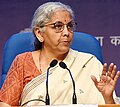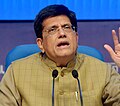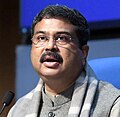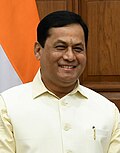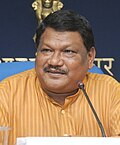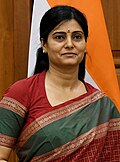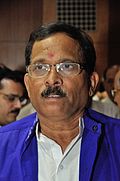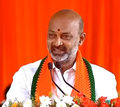This article needs additional citations for verification .(May 2024) |
 | |
 The incumbent Union Council of Ministers of the Third Modi ministry, 2024 at their swearing in | |
| Agency overview | |
|---|---|
| Formed | 15 August 1947 |
| Type | Highest executive body of the Government of India |
| Jurisdiction | Republic of India |
| Headquarters | New Delhi |
| Agency executives |
|
| Child agencies |
|
| Website | cabsec.gov.in |
The Union Council of Ministers is the principal executive organ of the Government of India, which serves to aid and advise the President of India in execution of their functions. [1] It is chaired by the Prime Minister of India and consists of the heads of each of the executive government ministries. Currently, the council is headed by Narendra Modi and consists of 71 fellow members. The council is answerable to the Lok Sabha. [2]
Contents
- Regulation
- Ranking
- Appointment
- Removal
- Council of Ministers in state governments
- Current Union Council of Ministers
- Oath of office
- Cabinet Ministers [8][9]
- Ministers of State (Independent Charge)
- Ministers of State (MoS)
- See also
- Notes
- References
- External links
A smaller executive body called the Union Cabinet is the supreme decision-making body in India; it is a subset of the Union Council of Ministers who hold important portfolios and ministries of the government. [3] [ failed verification ]






